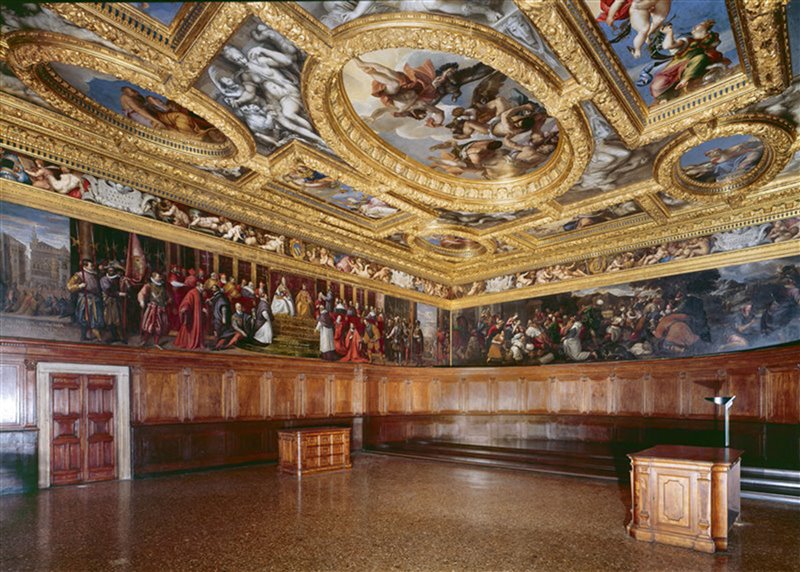In 1310 a young man from a noble background called Bajamonte Tiepolo had been growing more and more restless, unable to tolerate the state’s efforts to concentrate power in the hands of few noble families, from which his own family was exempt. So, full of youthful indignation, he and other two companions managed to gather much popular support and devised a coup to overthrow the doge and reshuffle the political situation. The three met in the middle of the night in mid-‐June with hundreds of followers under the clocktower in St. Mark’s Square, ready to march on the Palazzo Ducale. In Venice, however, the walls have always had eyes, and the Doge’s men were warned about the upcoming danger only moments before, but, still, just in time.
Pietro Gradenigo, the doge, was able to contain the revolt; however, it was a close call something like this, of course, was never to happen again, so the very next day he assembled a new office, the Consiglio dei Dieci, the Council of 10. 10 individuals were appointed with a special mandate to ensure the security of the State, and they were to use any means necessary to do so. The head of the first Consiglio dei Dieci was a man called Marino Falier, and he oversaw the trial of young Bajamonte Tiepolo and his fellow conspirators, who were immediately
sentenced to permanent exile. This was not the end of Marino Falier, however, who made a name for himself when he too became doge years later. Perhaps over-‐confident in his knowledge of Venetian espionage and counter-‐espionage, he attempted to seize total power with the help of some hundred men, but his plans were thwarted just like Tiepolo’s years earlier. Falier needed to be made an example of to remind Venetians that no one was above the law in Venice, not even the doge; with no time wasted, he was quickly put on trial, sentenced to death and beheaded.
The Consiglio dei Dieci had initially been set up as a temporary measure until things quieted down, but clearly their services were needed and they developed into a true secret service agency, with a web of spies and informants all across the city. Perhaps the first inkling into how a police state is formed.







